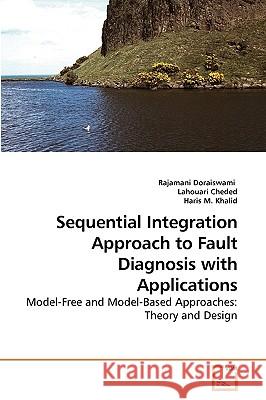Sequential Integration Approach to Fault Diagnosis with Applications » książka
Sequential Integration Approach to Fault Diagnosis with Applications
ISBN-13: 9783639224382 / Angielski / Miękka / 2010 / 196 str.
As the complexity of engineering systems is constantly increasing, their design calls for the sustainability and reliability of their high performance. Fault diagnosis (FD) is a vital system tool that addresses this critically-important issue. This book presents a clear and easy introduction to the sequential integration of the two major approaches to FD with application, namely model-free and model-based and draws on the power of the two approaches vitally for the detection of incipient faults which are hard to uncover by a single approach alone. In the model-free approach, this book explores from the intuitive approach of plausibility checks to the more sophisticated learning approaches (ANN, FL, Genetic algorithms, etc.) and their hybrid versions. In the model-based approach, the book presents relies on the powerful and ubiquitous Kalman filter and presents new material on: A new model-order selection criterion that is appealing to practicing engineers. A new and fresh look at the design of Kalman filters based on the simple and powerful internal model principle. As such, this book will be appealing to both researchers and practitioners alike."
As the complexity of engineering systems is constantly increasing, their design calls for the sustainability and reliability of their high performance. Fault diagnosis (FD) is a vital system tool that addresses this critically-important issue. This book presents a clear and easy introduction to the sequential integration of the two major approaches to FD with application, namely model-free and model-based and draws on the power of the two approaches vitally for the detection of incipient faults which are hard to uncover by a single approach alone. In the model-free approach, this book explores from the intuitive approach of plausibility checks to the more sophisticated learning approaches (ANN, FL, Genetic algorithms, etc.) and their hybrid versions. In the model-based approach, the book presents relies on the powerful and ubiquitous Kalman filter and presents new material on: • A new model-order selection criterion that is appealing to practicing engineers. • A new and fresh look at the design of Kalman filters based on the simple and powerful internal model principle. As such, this book will be appealing to both researchers and practitioners alike.











